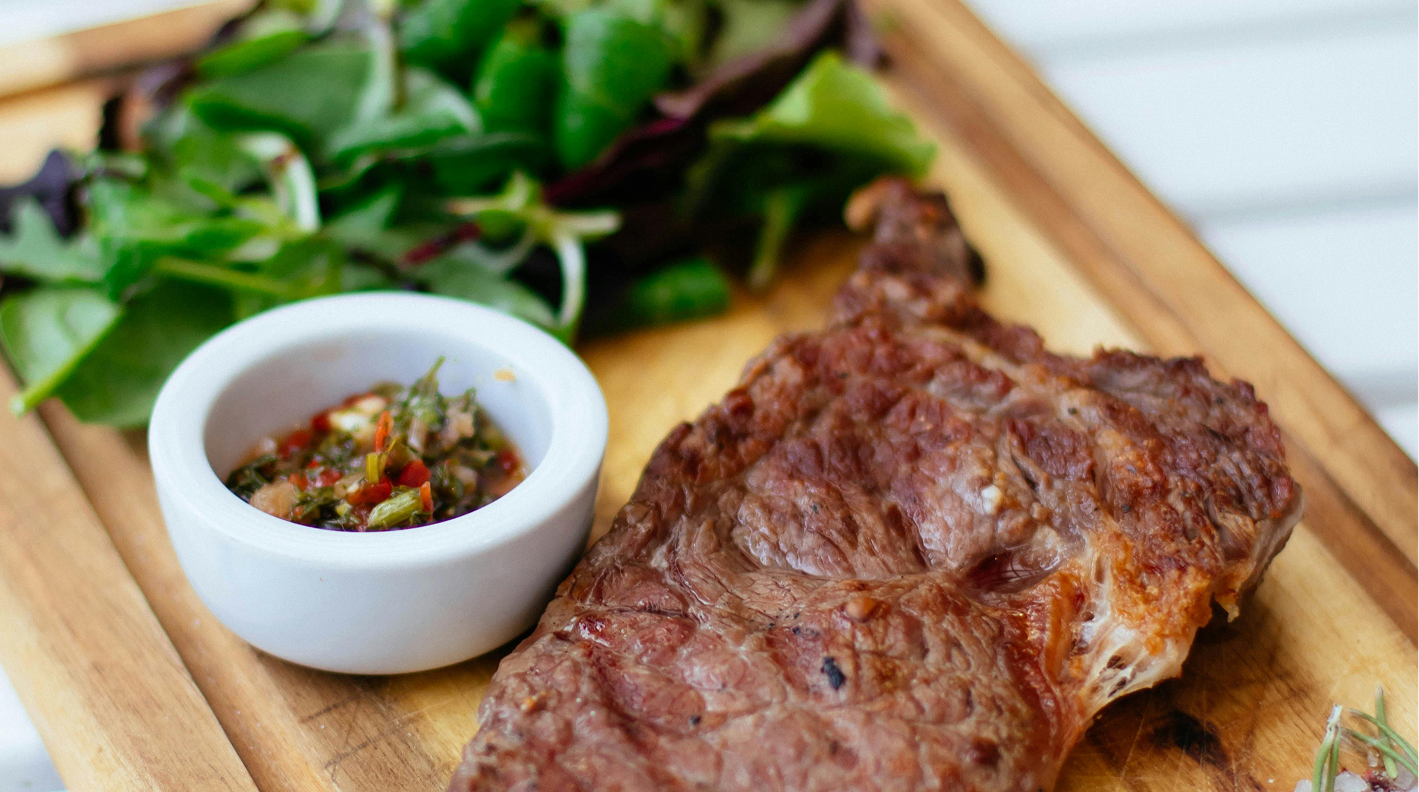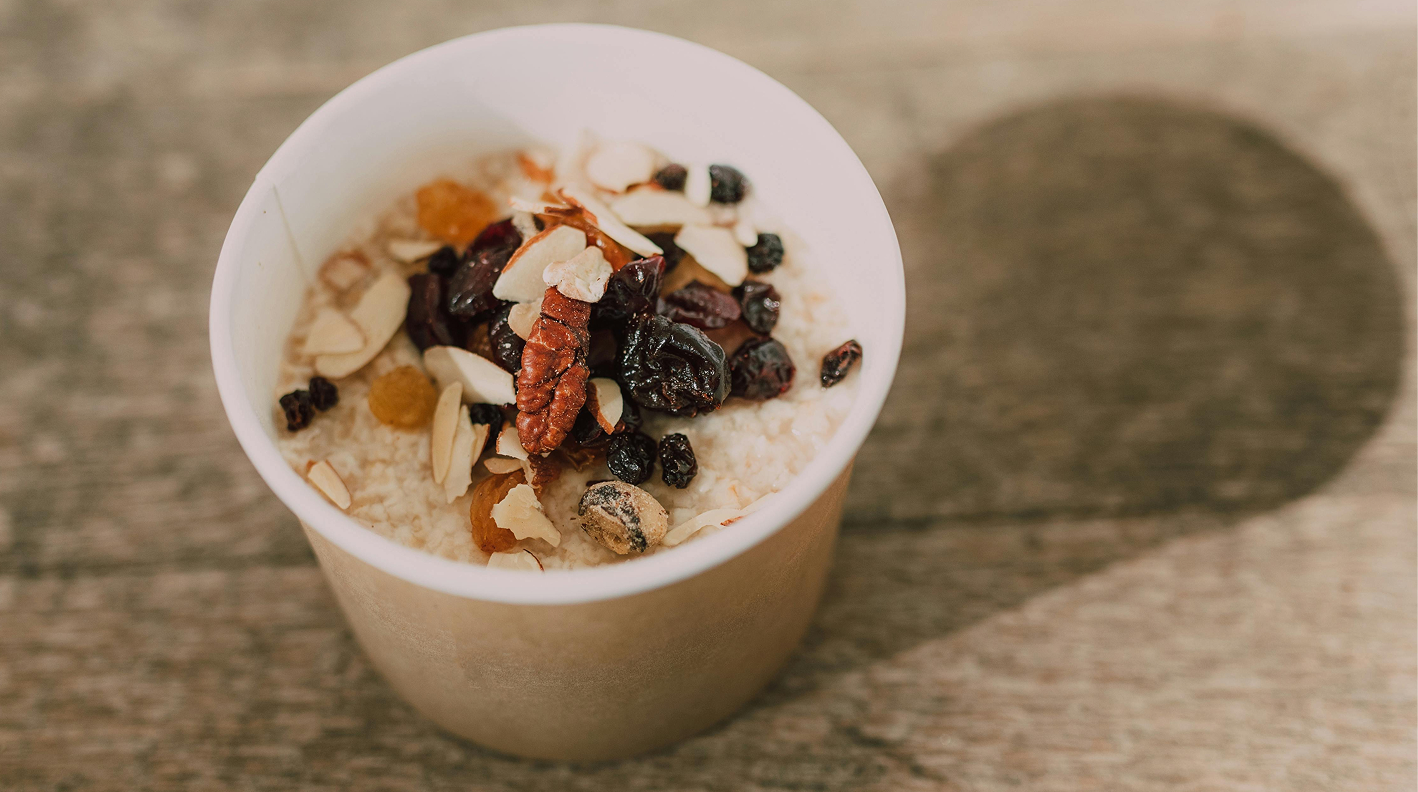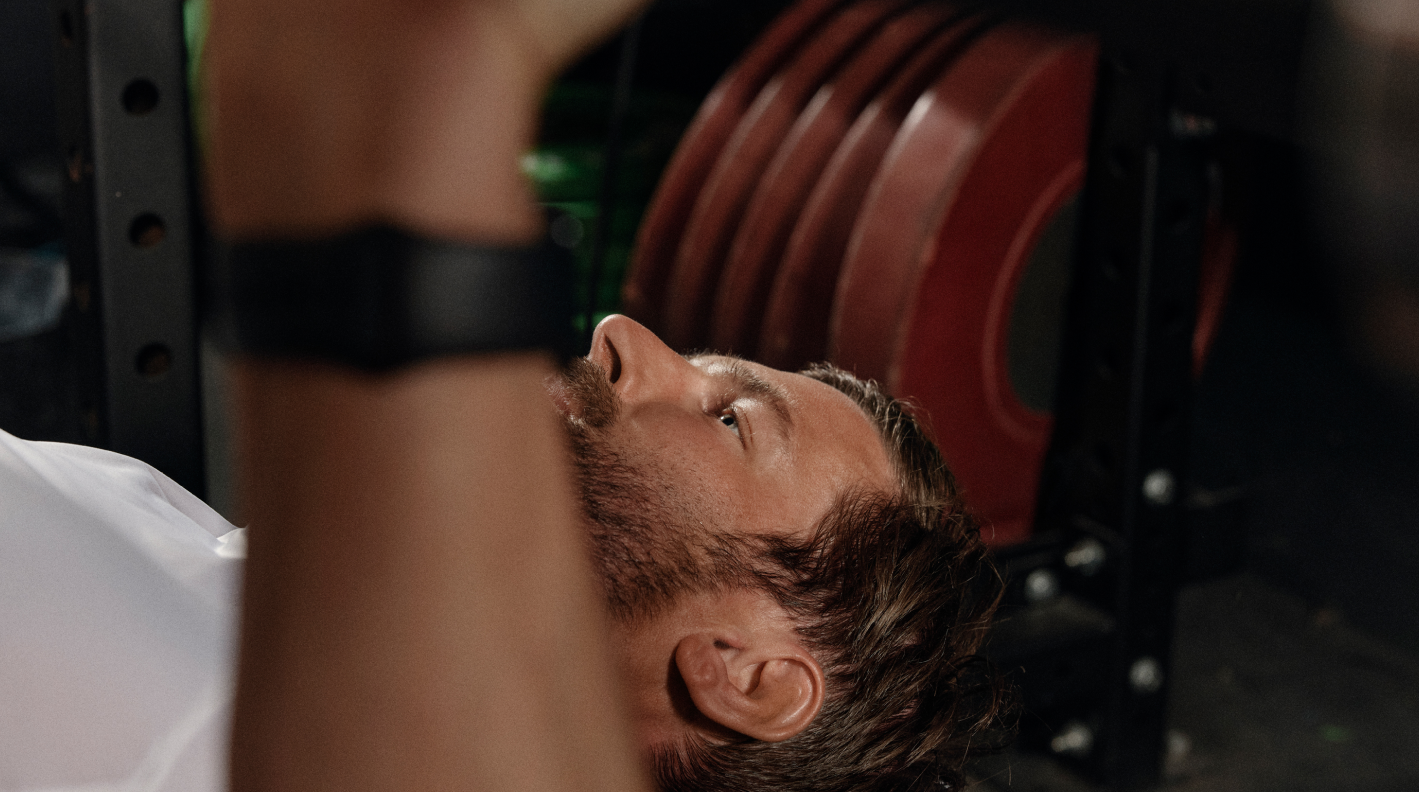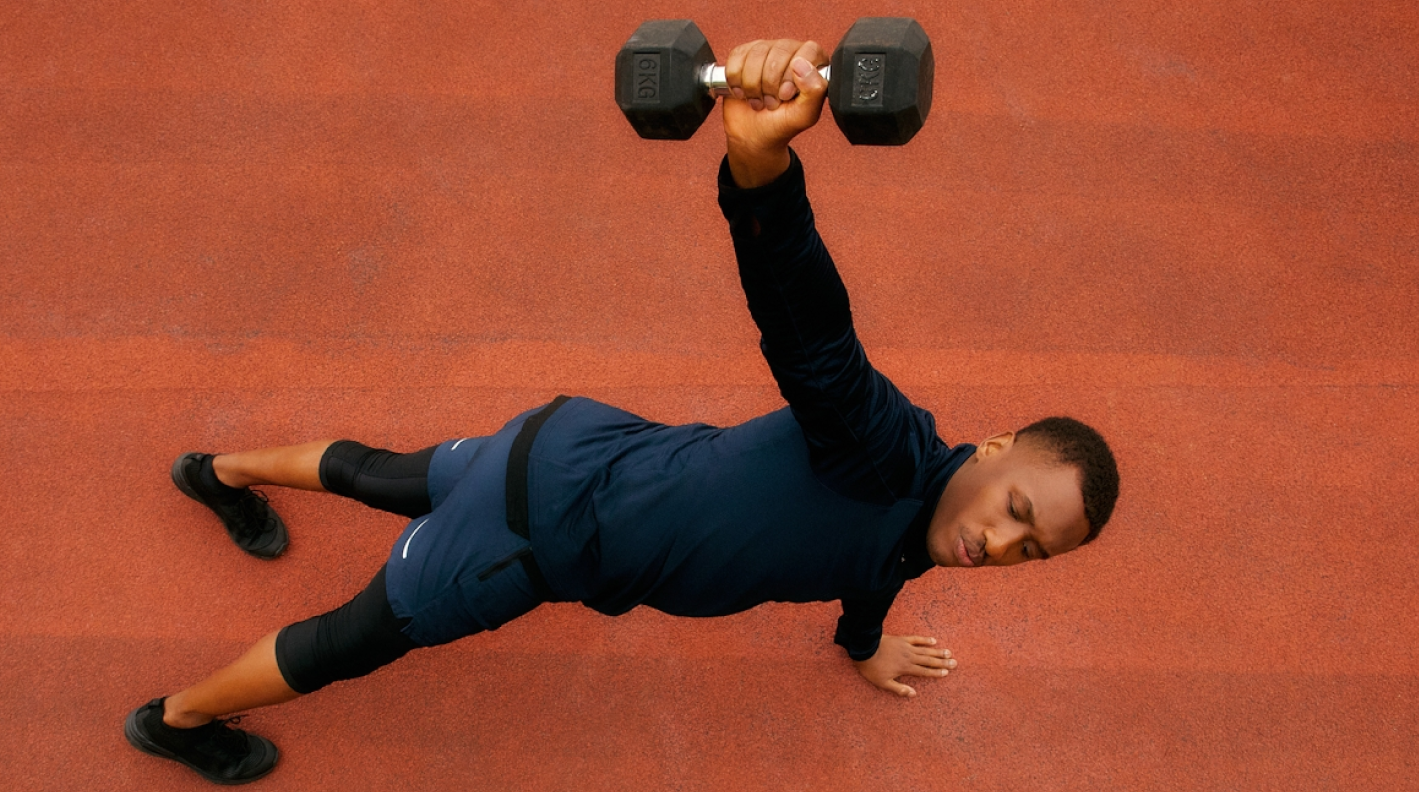How to create a diet to lose fat and gain muscle

Key takeaways
- Achieving body recomposition involves balancing fat loss and muscle gain by combining proper nutrition with exercise. A well-balanced diet fuels workouts, supports muscle repair, and aids in fat burning, making it essential for progress.
- Prioritise high-protein options like lean meats, Greek yogurt, eggs, tofu, and legumes to build muscle. Include healthy fats (avocado, nuts, olive oil) for energy and hormonal support, and complex carbs (oats, potatoes, legumes) for sustained energy. High-fibre foods also support digestion and overall health.
- Aim for a balanced macro split, allocating 30-40% of calories to proteins, 30-40% to carbs, and 20-30% to fats. Maintain a moderate calorie deficit (200 below maintenance) to allow simultaneous fat loss and muscle gain without compromising energy or recovery.
Anybody who has tried to lose fat, build muscle, or improve general health and well-being will know that diet is a key factor.
You can follow the best workout routine in the world, but if you aren't eating properly, you probably won't meet your goals or see much progress.
During any health and fitness journey, there are certain foods you should prioritise, and others that are best enjoyed in moderation or on special occasions.
Here's what you need to know about how diet impacts your progress, the best types of food to eat, and how the right diet can help you lose fat and build muscle at the same time.
The role of diet in body recomposition
Before we get into the role of diet, and which foods are important, let's make sure we understand what body recomposition is all about.
Body composition refers to the amount of fat mass, muscle mass, bones and water in your body [1]. Understanding your body composition provides a better picture of your overall health than just knowing your body weight or body mass index (BMI).
Body recomposition, therefore, refers to altering the ratio of muscle mass to fat in the body [2]. In simple terms, it is the process of fat loss and lean muscle gain happening at the same time. Your body weight might not drop during a body recomposition journey, but your body fat percentage, muscle mass, and the way you look and feel will all change.
When you are trying to lose fat and gain muscle, physical activity (especially strength training) and eating well are integral. Eating too much will make it hard to lose fat, while not eating enough will make it hard to build muscle and may cause your body to hold onto fat. Your food not only fuels your workouts, but also supports muscle building, recovery, and your body's ability to burn fat.
Understanding your nutritional requirements (such as your metabolic rate and macronutrient needs) is a key step in a health journey, especially for body recomposition. Your diet essentially provides the building blocks for progress through a balanced and nutritious intake of food at a modest calorie deficit.
With this in mind, you need to make sure you are aware of how many calories your body needs, as well as your recommended macronutrients. It is important to make sure you are fuelling with enough protein, healthy carbohydrates and fats, fibre and micronutrients to stay healthy and meet your goals.
Foods to eat and avoid while on a body recomp journey
So we understand that diet plays a key role in body recomposition. Now, how should you eat for the best chance of reaching your goals?
First of all, the good news is there is not one 'best' diet to lose fat and gain muscle — you don't need to follow an exact meal plan to see results. Similarly, you don't necessarily need to cut out any food groups (although some are best enjoyed in moderation).
As we have discussed, high-protein foods are one of the key areas of nutrition to focus on if you are weight training and trying to gain muscle. Proteins are made up of amino acids, which the body uses to build muscle and maintain it; a crucial part of body recomposition [3].
Eating more protein can also help reduce body fat, as having more lean muscle mass improves your metabolism and your body's ability to burn calories [4]. Protein is also highly satiating, meaning it will keep you fuller for longer and may help reduce snacking and overall calorie intake [5].
There are a lot of plant-based and animal-based options for high-protein meals and snacks, including Greek yoghurt, cottage cheese, other low-fat dairy products, eggs, tofu, legumes, nuts and seeds, and of course lean red meat or chicken breast.
If you're on the go a lot or struggle to meet your recommended protein intake through whole foods, protein powders and bars are also a great option for building lean muscle.
Healthy fats also play a role in a fat loss journey. Like protein, fats are satiating so will keep you fuller for longer, and they also support energy and some hormones [6]. Common sources of healthy fats include olive oil, nuts, seeds, avocado and fish such as salmon or sardines.
It is important to remember that fats contain more calories than carbohydrates and fats, so eating a large amount of healthy fats could put you over your recommended calorie intake.
Carbohydrates often get a bad rap when it comes to health and fat loss, but they actually play an important role in body recomp and weight training [7]. Carbohydrates are a source of energy and will help fuel your workouts while you build muscle, especially complex carbohydrates which are digested more slowly than simple carbs.
Some healthy carbohydrates to help you develop and maintain muscle mass include rice, starchy vegetables like potatoes, oats, legumes, and fruit [8].
High-fibre foods such as whole grains, fruits, vegetables and legumes can also play an important role in body recomp. Fibre aids digestion and supports blood sugar, weight management, and overall health [9].
In terms of foods to eat in moderation, anything that is high in sugar or unhealthy fats, or full of 'empty calories' (such as soft drinks, alcohol, potato chips and lollies) with no nutritional benefits, will not support your weight loss or strength training goals.
If you enjoy these foods, you do not necessarily need to cut them out of your diet completely, but we suggest being mindful of your consumption and enjoying small amounts in moderation.
We also suggest being aware of things like condiments, cooking oil and salad dressings as these can often contain a surprisingly high number of calories, fat and sugar.
The best macro ratio to lose fat and gain muscle
So we understand that meeting your macronutrient needs (that is, the amount of protein, fats, and carbs your body needs) is important if you are trying to lose fat and gain muscle.
Now, how much of each macro does your body need, and how do you work this out?
As a general rule, your macronutrient ratio should be split relatively evenly between each group. This means 30-40% of your daily calories should come from fat intake, 30-35% should be from protein intake, and the remaining 30-40% from carbohydrates.
For example, if your daily intake is 2,000 calories, you would be eating about 175 grams of protein, 175 grams of carbohydrates, and 66 grams of fat. Fat contains more calories than carbs and protein, with 9 calories per gram compared with 4 calories per gram, which is why you don't need to eat as much fat for an even ratio [10].
To meet your needs, especially protein, many people find it easiest to split their target evenly between meals. This could mean having five meals or snacks throughout the day, each containing 35 grams of protein.
If you are new to eating this much protein, it can help to plan out your meals in advance so that you don't reach the end of the day and realise you are well below your target.
We should also note that your ideal macro split can vary depending on factors like age, sex, body type, exercise regime and specific goals.
Do you need to be in a calorie deficit?
When you are trying to lose fat, eating fewer calories (which is known as being in a calorie deficit) is typically recommended. However, to gain muscle and stay healthy, it is important not to eat too little. Instead, a small calorie deficit (around 200 below your maintenance calories) is recommended to help you lose fat and build muscle simultaneously.
Working out your basal metabolic rate, maintenance calories and a suitable calorie deficit can be a little complicated if you have never done it before, so we recommend speaking to a professional if you are unsure. They can help you work out your nutritional needs and make sure you are not eating too little or too much for your goals.
If you are eager to lose fat and gain muscle and need a little extra support, Compound's Body Transformation Programme could be helpful for you. Compound combines medical treatments, prescriber support and personalised guidance to help you not just lose weight but completely transform your body and health for life.
- Breakthrough medication: Lose up to 21% of your body weight in 72 weeks with once-weekly, clinically proven treatment. It keeps you feeling fuller for longer, so eating less feels natural. Pair them with the Compound Code to lock results in for good.
- Compound Code: Our medication creates opportunity — Compound helps you seize it. Our proven system makes your treatment work harder. The Compound Code builds the muscle, energy, and fitness that medication alone can't deliver. Our holistic approach transforms not just how you look, but how you feel and function daily. So when you eventually finish treatment, your results don't disappear with it.
Anybody who has tried to lose fat, build muscle, or improve general health and well-being will know that diet is a key factor.
You can follow the best workout routine in the world, but if you aren't eating properly, you probably won't meet your goals or see much progress.
During any health and fitness journey, there are certain foods you should prioritise, and others that are best enjoyed in moderation or on special occasions.
Here's what you need to know about how diet impacts your progress, the best types of food to eat, and how the right diet can help you lose fat and build muscle at the same time.
The role of diet in body recomposition
Before we get into the role of diet, and which foods are important, let's make sure we understand what body recomposition is all about.
Body composition refers to the amount of fat mass, muscle mass, bones and water in your body [1]. Understanding your body composition provides a better picture of your overall health than just knowing your body weight or body mass index (BMI).
Body recomposition, therefore, refers to altering the ratio of muscle mass to fat in the body [2]. In simple terms, it is the process of fat loss and lean muscle gain happening at the same time. Your body weight might not drop during a body recomposition journey, but your body fat percentage, muscle mass, and the way you look and feel will all change.
When you are trying to lose fat and gain muscle, physical activity (especially strength training) and eating well are integral. Eating too much will make it hard to lose fat, while not eating enough will make it hard to build muscle and may cause your body to hold onto fat. Your food not only fuels your workouts, but also supports muscle building, recovery, and your body's ability to burn fat.
Understanding your nutritional requirements (such as your metabolic rate and macronutrient needs) is a key step in a health journey, especially for body recomposition. Your diet essentially provides the building blocks for progress through a balanced and nutritious intake of food at a modest calorie deficit.
With this in mind, you need to make sure you are aware of how many calories your body needs, as well as your recommended macronutrients. It is important to make sure you are fuelling with enough protein, healthy carbohydrates and fats, fibre and micronutrients to stay healthy and meet your goals.
Foods to eat and avoid while on a body recomp journey
So we understand that diet plays a key role in body recomposition. Now, how should you eat for the best chance of reaching your goals?
First of all, the good news is there is not one 'best' diet to lose fat and gain muscle — you don't need to follow an exact meal plan to see results. Similarly, you don't necessarily need to cut out any food groups (although some are best enjoyed in moderation).
As we have discussed, high-protein foods are one of the key areas of nutrition to focus on if you are weight training and trying to gain muscle. Proteins are made up of amino acids, which the body uses to build muscle and maintain it; a crucial part of body recomposition [3].
Eating more protein can also help reduce body fat, as having more lean muscle mass improves your metabolism and your body's ability to burn calories [4]. Protein is also highly satiating, meaning it will keep you fuller for longer and may help reduce snacking and overall calorie intake [5].
There are a lot of plant-based and animal-based options for high-protein meals and snacks, including Greek yoghurt, cottage cheese, other low-fat dairy products, eggs, tofu, legumes, nuts and seeds, and of course lean red meat or chicken breast.
If you're on the go a lot or struggle to meet your recommended protein intake through whole foods, protein powders and bars are also a great option for building lean muscle.
Healthy fats also play a role in a fat loss journey. Like protein, fats are satiating so will keep you fuller for longer, and they also support energy and some hormones [6]. Common sources of healthy fats include olive oil, nuts, seeds, avocado and fish such as salmon or sardines.
It is important to remember that fats contain more calories than carbohydrates and fats, so eating a large amount of healthy fats could put you over your recommended calorie intake.
Carbohydrates often get a bad rap when it comes to health and fat loss, but they actually play an important role in body recomp and weight training [7]. Carbohydrates are a source of energy and will help fuel your workouts while you build muscle, especially complex carbohydrates which are digested more slowly than simple carbs.
Some healthy carbohydrates to help you develop and maintain muscle mass include rice, starchy vegetables like potatoes, oats, legumes, and fruit [8].
High-fibre foods such as whole grains, fruits, vegetables and legumes can also play an important role in body recomp. Fibre aids digestion and supports blood sugar, weight management, and overall health [9].
In terms of foods to eat in moderation, anything that is high in sugar or unhealthy fats, or full of 'empty calories' (such as soft drinks, alcohol, potato chips and lollies) with no nutritional benefits, will not support your weight loss or strength training goals.
If you enjoy these foods, you do not necessarily need to cut them out of your diet completely, but we suggest being mindful of your consumption and enjoying small amounts in moderation.
We also suggest being aware of things like condiments, cooking oil and salad dressings as these can often contain a surprisingly high number of calories, fat and sugar.
The best macro ratio to lose fat and gain muscle
So we understand that meeting your macronutrient needs (that is, the amount of protein, fats, and carbs your body needs) is important if you are trying to lose fat and gain muscle.
Now, how much of each macro does your body need, and how do you work this out?
As a general rule, your macronutrient ratio should be split relatively evenly between each group. This means 30-40% of your daily calories should come from fat intake, 30-35% should be from protein intake, and the remaining 30-40% from carbohydrates.
For example, if your daily intake is 2,000 calories, you would be eating about 175 grams of protein, 175 grams of carbohydrates, and 66 grams of fat. Fat contains more calories than carbs and protein, with 9 calories per gram compared with 4 calories per gram, which is why you don't need to eat as much fat for an even ratio [10].
To meet your needs, especially protein, many people find it easiest to split their target evenly between meals. This could mean having five meals or snacks throughout the day, each containing 35 grams of protein.
If you are new to eating this much protein, it can help to plan out your meals in advance so that you don't reach the end of the day and realise you are well below your target.
We should also note that your ideal macro split can vary depending on factors like age, sex, body type, exercise regime and specific goals.
Do you need to be in a calorie deficit?
When you are trying to lose fat, eating fewer calories (which is known as being in a calorie deficit) is typically recommended. However, to gain muscle and stay healthy, it is important not to eat too little. Instead, a small calorie deficit (around 200 below your maintenance calories) is recommended to help you lose fat and build muscle simultaneously.
Working out your basal metabolic rate, maintenance calories and a suitable calorie deficit can be a little complicated if you have never done it before, so we recommend speaking to a professional if you are unsure. They can help you work out your nutritional needs and make sure you are not eating too little or too much for your goals.
If you are eager to lose fat and gain muscle and need a little extra support, Compound's Body Transformation Programme could be helpful for you. Compound combines medical treatments, prescriber support and personalised guidance to help you not just lose weight but completely transform your body and health for life.
- Breakthrough medication: Lose up to 21% of your body weight in 72 weeks with once-weekly, clinically proven treatment. It keeps you feeling fuller for longer, so eating less feels natural. Pair them with the Compound Code to lock results in for good.
- Compound Code: Our medication creates opportunity — Compound helps you seize it. Our proven system makes your treatment work harder. The Compound Code builds the muscle, energy, and fitness that medication alone can't deliver. Our holistic approach transforms not just how you look, but how you feel and function daily. So when you eventually finish treatment, your results don't disappear with it.
- https://pmc.ncbi.nlm.nih.gov/articles/PMC8399582/
- https://journals.lww.com/nsca-scj/fulltext/2020/10000/body_recomposition__can_trained_individuals_build.3.aspx
- https://www.betterhealth.vic.gov.au/health/healthyliving/protein
- https://www.betterhealth.vic.gov.au/health/conditionsandtreatments/metabolism
- https://www.healthdirect.gov.au/protein
- https://www.healthdirect.gov.au/dietary-fats
- https://theconversation.com/want-to-build-muscle-why-carbs-could-be-just-as-important-as-protein-224305
- https://www.healthdirect.gov.au/carbohydrates
- https://theconversation.com/fiber-is-your-bodys-natural-guide-to-weight-management-rather-than-cutting-carbs-out-of-your-diet-eat-them-in-their-original-fiber-packaging-instead-205159
- https://www.nal.usda.gov/programs/fnic











